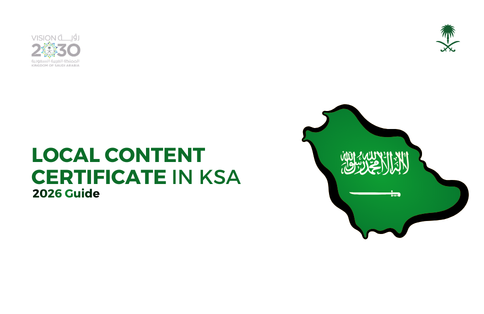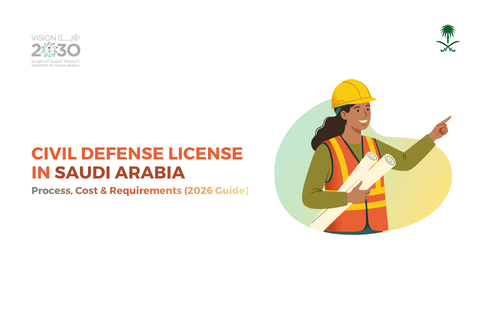Doing business in Saudi Arabia offers great potential, but to succeed you need to understand and comply with the legal framework. From registration and licensing to tax, immigration, and sector restrictions getting this right is essential. Below, we outline the key legal requirements, recent reforms, and best practices that every foreign or local investor should know.
What are the legal bases & recent reforms
Saudi Arabia has undertaken major regulatory reforms under Vision 2030, aiming to make the investment climate more competitive. Key among those reforms are:
A new Commercial Registration (CR) / Trade Name Law effective from 3 April 2025, which modernised how companies register, removed some renewal burdens, and introduced annual confirmation of registration data.
- Foreign investment rules have been relaxed in a number of sectors, enabling 100% foreign ownership in many cases. However, there remains a Negative List of sectors where foreign ownership is either restricted or prohibited.
Key legal requirements to set up business
Here are the major legal steps & demands that any investor or business must satisfy:
1. Commercial Registration (CR)
Must register with the Ministry of Commerce. All businesses (sole proprietorships, companies, branches, etc.) must have a valid CR.
- Under the 2025 reforms, the CR no longer needs annual renewal in the traditional sense; instead, businesses must confirm their registration data every 12 months. Failure to do so can lead to suspension.
- Data to be registered includes trade name, legal form, capital, address, shareholders, board members, registration number, etc.
2. Minimum capital & ownership structure
For foreign companies (especially for LLCs with 100% foreign ownership), there is often a minimum capital requirement. A common benchmark is SAR 500,000, though this can vary depending on the sector and scale.
- Some sectors demand significantly higher capital. For example, real estate investment, commercial business with big scale, etc., may require SAR 30 million or more.
- Some sectors still impose restrictions on foreign ownership or require certain Saudi nationals to hold positions in management or board.
3. Documents & licensing
Foreign entities usually need to submit:
A valid commercial registration certificate of the parent entity, attested by Saudi embassy/chamber of commerce where applicable.
- Articles of Association / charter of the company.
- Audited financial statements (latest fiscal year) attested / translated.
- Identification documents of shareholders and board members.
Certain business activities will also require sector-specific permissions or licenses (e.g. health, education, food safety, manufacturing, environmental, etc.).
4. Registration with other authorities
After commercial registration, a business must register with other relevant government bodies:
Ministry of Human Resources and Social Development (for employment laws, Saudization)
- General Organization for Social Insurance (GOSI) – for employee social insurance contributions.
- Zakat, Tax and Customs Authority (ZATCA) – for zakat (if applicable), corporate tax, VAT registration when thresholds apply.
- Chamber of Commerce membership is mandatory.
- Municipal / Baladiya licenses if you have premises, commercial activity in a municipality, etc.
5. Trade name, activity codes & negative list
Must reserve a trade name that is unique and acceptable under the rules.
- Must specify business activity codes, and ensure they align across all relevant bodies (Ministry of Commerce, MISA or Ministry of Investment, Municipality, etc.). Inconsistency can lead to delay or rejection.
- Check the Negative List for restricted or prohibited sectors for foreign investment. These lists are updated periodically.
6. Legal age, local partner & nationality conditions
Applicants must be at least 18 years old.
- Government employees cannot act as sole business owners in some cases.
- Some legal forms require certain percentages of Saudi or GCC nationals in board or management for specific sectors.
7. Registered office / national address
Must have a verifiable business address in Saudi Arabia. A national address (Saudi Post or equivalent) is required.
- Lease agreement or proof of property rights for the premises may be needed.
8. Ongoing compliance
Confirm CR data annually.
- Maintain proper accounting, financial statements, bookkeeping.
- Renew any sector-specific licenses, municipal permits, and ensure membership dues (Chamber, etc.) are paid.
9. Investor Protection and Legal Transparency
MISA ensures that all investors receive fair treatment under Saudi law. The regulatory environment has evolved to protect foreign investors from arbitrary restrictions, ensuring legal transparency and dispute resolution mechanisms that align with international standards. This stability builds confidence among investors looking for sustainable business growth.
Tax, labour & other obligations
- Corporate tax
- Value Added Tax (VAT)
- Saudization / Nitaqat
- Social Insurance
Penalties & risks of non-compliance
Failing to comply with these legal requirements can lead to:
- Suspension or cancellation of your commercial registration.
- Fines, delays, inability to open bank accounts, rejection of licenses.
- Legal exposure for business contracts entered into with an unregistered or non-compliant entity.
- Reputational risk, loss of trust with government bodies & partners.
Why J K ?
To ensure smooth compliance and avoid costly mistakes:
- Engage local legal or consulting support
- Prepare your documents carefully
- Check activity sector-requirements
- Plan for ongoing compliance
- Monitor regulatory changes
Final Thoughts
Starting a business in Saudi Arabia means more than just investment. The legal environment demands well-prepared documents, clarity on ownership and sector permissions, compliance with registration and licensing, and a full understanding of tax, labour, and ongoing obligations. But once you meet those legal requirements, the rewards can be significant, access to a growing market, robust government support, and alignment with national transformation goals.
J K Management Consultancies is here to guide you through each step: we help prepare everything you need, check eligibility, choose the right legal form, align with investment rules, and ensure full legal compliance so your business can not just enter, but thrive in Saudi Arabia.




















